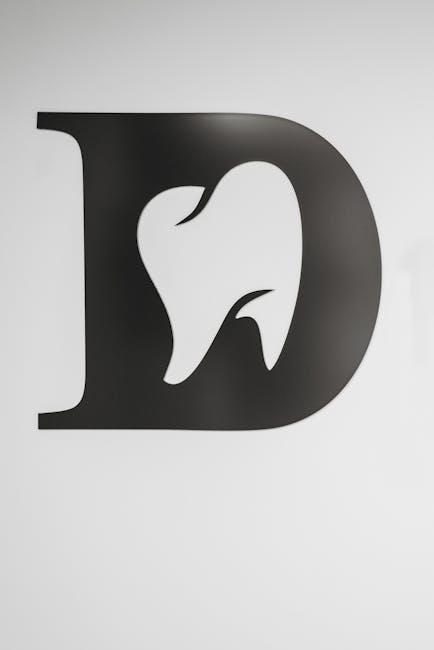
Dental Marketing Firm Gargle Likely Source of 8M Leaked Patient Records – HealthExec
In a rapidly evolving digital health landscape, data security remains a crucial concern. Recent news has placed the dental marketing firm Gargle at the center of a massive data breach impacting millions of dental patients nationwide. Reports indicate that as many as 8 million patient records may have been leaked, exposing sensitive personal and health information. This breach raises urgent questions about the cybersecurity practices within healthcare marketing firms and highlights the need for stringent data protection strategies.
Introduction: Understanding the Gargle Data Breach
HealthExec has investigated the alarming case of Gargle, a company specializing in dental marketing solutions, which is now identified as the likely source behind one of 2024’s largest healthcare data leaks. Patient records containing private health details, contact information, and other personal identifiers were reportedly compromised. As dental clinics and marketing firms increasingly collaborate and share data, this incident underscores the vulnerabilities within these partnerships.
What Happened? The Gargle Data Leak Explained
According to cybersecurity experts and insider reports:
- Source of Breach: An unsecured cloud storage repository used by Gargle was found publicly accessible.
- Data Type Exposed: Patient names, dental treatment history, appointment details, phone numbers, and in some cases, insurance and payment information.
- Scale of Leak: Approximately 8 million patient records across multiple states.
- Vulnerability: The firm’s insufficient encryption protocols and lax access controls facilitated unauthorized access.
Impact on Patients and Dental Practices
The repercussions of this data breach reverberate beyond just Gargle’s reputation. Dental patients and clinics have reported concerns including:
- Identity Theft Risk: Stolen information can be exploited for fraudulent activities.
- Loss of Trust: Patients may hesitate to share sensitive health information or switch dental providers.
- Financial Consequences: Clinics may face penalties under HIPAA regulations and increased insurance costs.
- Operational Disruptions: Affected dental practices need to implement crisis management and improve cybersecurity infrastructure.
Table: Overview of the Gargle Patient Data Breach
| Aspect | Details |
|---|---|
| Company | Gargle (Dental Marketing Firm) |
| Number of Records Leaked | ~8 Million |
| Type of Data Exposed | Personal info, dental history, insurance & payment details |
| Cause of Breach | Unsecured cloud storage and weak encryption |
| Potential Impact | Identity theft, HIPAA violations, loss of patient trust |
Why Are Dental Marketing Firms Vulnerable?
Dental marketing firms like Gargle play a vital role in connecting dental practices with potential patients. However, this increased data exchange comes with risks:
- Handling Sensitive Data: Firms process personal health information (PHI) that requires strict compliance with HIPAA.
- Outsourced Data Management: They often rely on third-party vendors and cloud platforms, adding complexity to security oversight.
- Lack of Cybersecurity Expertise: Marketing agencies may lack the necessary infrastructure or knowledge for safeguarding healthcare data effectively.
- Regulatory Compliance Gaps: Not all firms prioritize or fully understand healthcare privacy laws.
Practical Tips to Protect Dental Patient Data
Dental practices and marketing partners must adopt strong security measures to prevent similar data leaks. Here are actionable steps that can help:
- Conduct Security Audits: Regularly evaluate all vendors’ data protection measures and cloud security configurations.
- Implement Encryption: Use end-to-end encryption on all sensitive data transfers and storage.
- Access Controls: Restrict data access on a “need-to-know” basis with multi-factor authentication.
- Employee Training: Educate staff on phishing attacks and secure data handling protocols.
- Incident Response Planning: Develop clear policies for responding to data breaches swiftly and transparently.
- HIPAA Compliance: Ensure all partners adhere strictly to Health Insurance Portability and Accountability Act requirements.
Case Study: How One Dental Practice Survived a Data Leak
In 2023, a mid-sized dental clinic in California discovered their marketing partner suffered a minor data breach. Thanks to proactive cybersecurity measures, the clinic was able to:
- Promptly notify affected patients with transparent communication.
- Offer free credit monitoring to mitigate identity theft risks.
- Switch to a HIPAA-compliant vendor with robust cloud security.
- Implement internal data encryption and tightened access protocols.
- Restore patient trust over time by committing to transparency and security investments.
First-Hand Experience: The Patient’s Perspective
Jessica M., a dental patient impacted by the Gargle breach, shared her concerns: “I never imagined my dental history and contact details could be exposed like this. It made me rethink how much information I share with my dentist and their marketing partners. I hope firms like Gargle wake up to the real risks.”
Her experience echoes the heightened anxiety many patients now face, pushing for more accountability and better data security in dental healthcare marketing.
Conclusion: Safeguarding the Future of Dental Patient Data
The Gargle data breach is a stark reminder that dental marketing firms hold more responsibility than ever to protect patient health information. Dental clinics must carefully vet their marketing partners, demand robust cybersecurity standards, and foster a culture of data privacy awareness.
As patient data becomes an invaluable asset, the healthcare marketing ecosystem must evolve with enhanced protections to prevent breaches that jeopardize trust, safety, and compliance. By learning from Gargle’s mistakes and implementing industry best practices, the dental community can ensure safe, secure, and effective patient engagement in years to come.


